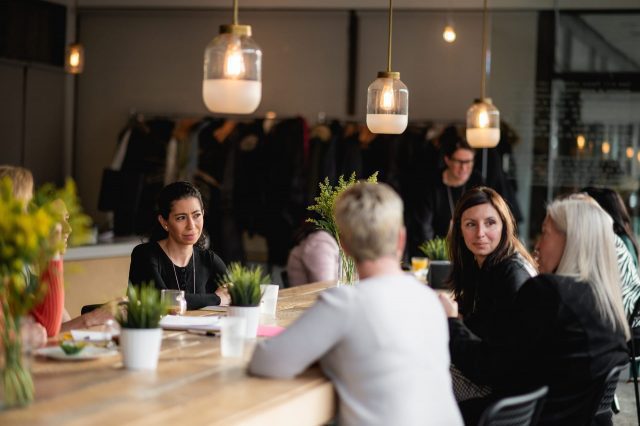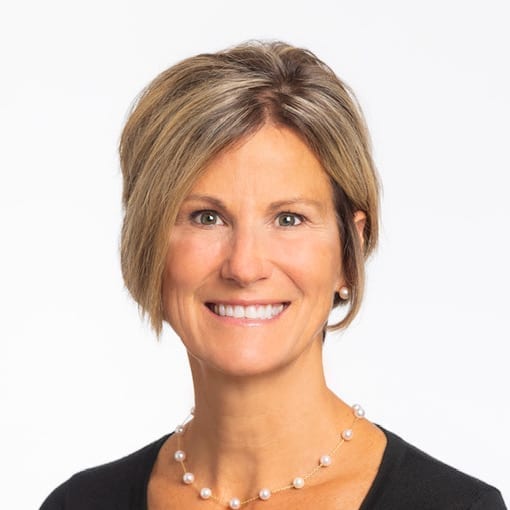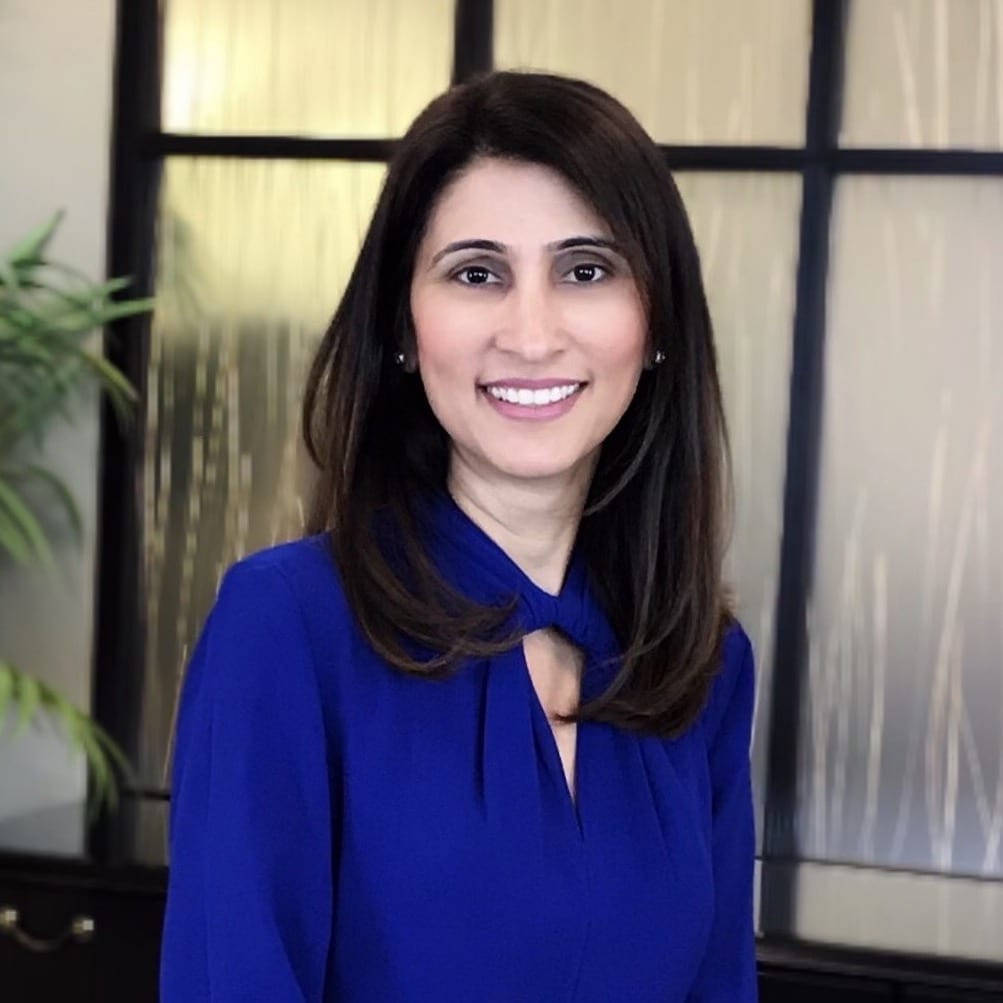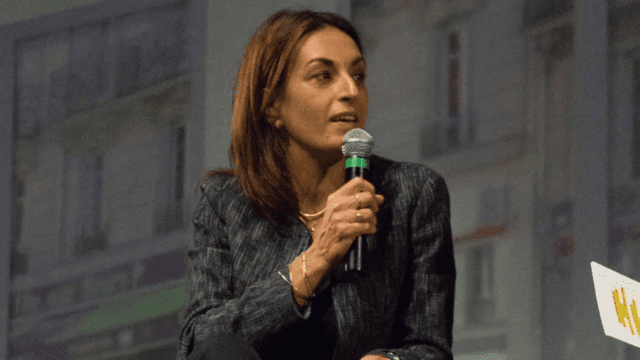100 Days to Dare Embracing My Seniority
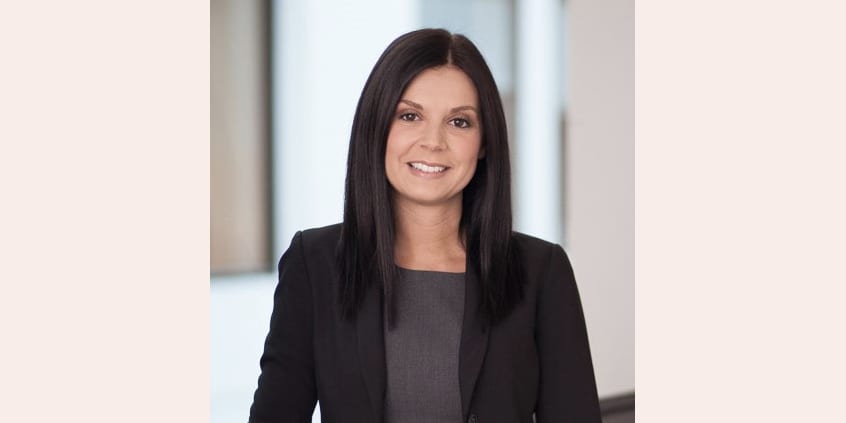
I started at BDC straight out of university, and even though I’d had three or four promotions since, I was often still seen as a junior by senior members of the team.
As an Associate Director, Fund Investments, Business Development Bank of Canada, Kristina D’Amico is a well-established professional and leader, with a strong habit of introspection. Yet her participation in the Ambition Challenge has led her to a few revelations about herself and how she relates to her colleagues at work.
Enthusiastic, the new graduate of The A Effect shares the highlights of her journey and the impact the Ambition Challenge had on her ability to take risks and her mindset as a professional.
We often say that the Ambition Challenge is more about adapting your mindset and your behaviour than anything else, through introspection and action. How would you describe your experience?
While I consider myself to be a very self-aware individual, the program shed light on many aspects that I had not yet reflected on. It taught me how to get out of my comfort zone, how to process failure – and bounce back from it! – how to take on more risk, and how to leverage my strengths to positively influence myself and those around me. For these reasons, I feel better equipped to interpret the challenges ahead as I progress in my career.
You talk about taking more risks and processing failure. It sounds quite scary, to be honest. What do you mean by that?
I would say that seeing failure in a positive light is my biggest aha! moment of the journey. I learned a lot about how some of my behaviours might be driven by the fear of failure, instead of being motivated by a quest toward success.
The Ambition Challenge taught me positive ways to interpret failure in my professional life by viewing it as a way to learn and grow rather than as a risk to my reputation. It was an eye-opening chapter for me. When you embrace the idea that failure is an inevitable part of your journey, it’s a lot less intimidating.
I’ve learned to ask myself, “will this issue matter 10 weeks from now? 10 months from now? 10 years?” The answer puts things into perspective.
It sounds like you learned a lot during the program. What would you say was the most important learning for you?
“What got you here won’t get you there”. This notion really resonated with me. As you rise through the ranks, you may have to calibrate some aspect of your personality that made you shine in the past. What brought you to where you are won’t necessarily carry you to where you need to be. It made me realize that even though being detail-oriented and striving for perfection may have been important at the beginning of my career in order to be seen as a subject-matter expert, it might actually work against me when it comes to either accessing senior positions, or being taken seriously once I’m there. I used to see perfectionism as a sign of professionalism, but I have come to see it as more of a limitation. Influence and visibility are better tools for growing within a company.
How did the program transform the way you approach things at work?
I’m much more assertive in terms of sharing my views and going after what I want. I recognize that I am where I am because I deserve to be there, and I’m proud of all that I have accomplished. My 100-day challenge, during the journey with The A Effect, was to be more comfortable with expressing myself in front of senior co-workers and external partners. The challenge made me seek out opportunities to speak to those individuals and develop my ability to convey messages clearly, with conviction, and with confidence.
Pushing myself beyond my comfort zone is something I will continue to do as I progress in my career. For example, I have gotten in the habit of thinking twice before saying “no” to an opportunity. I even promised myself that I’d take on opportunities to speak in public, or go so far as to seek them out. It’s exciting.
What piece of advice did you receive during the program, and that you think everyone should hear?
Be receptive to feedback, but be careful who you give your energy to. It’s a nuanced piece of advice given by Nadia Theodore, and it really spoke to me. I used to react to any type of feedback, positive or negative, and it took a toll on me. Now, I take a moment to reflect on any criticism I receive and ask myself if it’s meant to be constructive, or if the person really has my best interests at heart. It has changed the way I process feedback, making sure I do not succumb to other people’s vision of me, by taking ownership of my own narrative.

